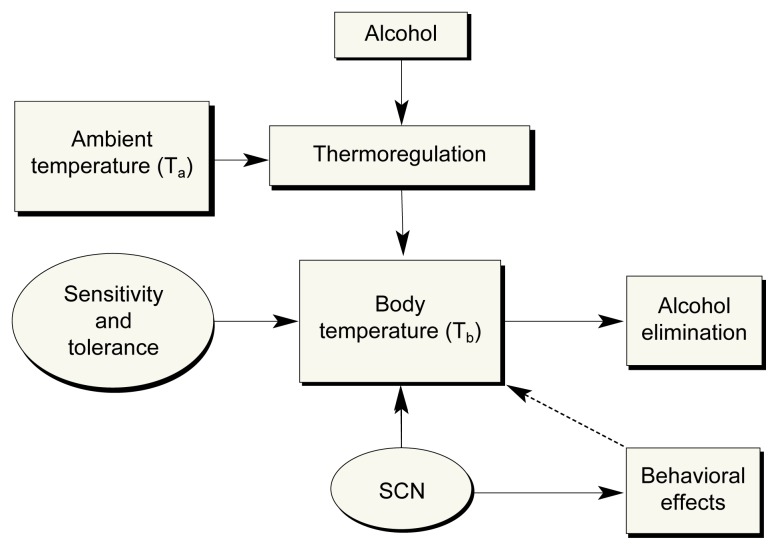Figure 2.
Body temperature (Tb) can be significantly influenced by environmental or ambient temperature (Ta) in the presence of alcohol. Alcohol-induced disruption of normal thermoregulatory mechanisms results in hyperthermia or hypothermia in response to higher or lower Ta, respectively. A lower Tb appears to be protective of the system, because hypothermia causes the body to be less sensitive to the central depressant effects of alcohol. Initial sensitivity or tolerance to alcohol also may play a part in the overall behavioral effects. The circadian rhythm influences Tb or behavior (e.g., amount of activity) via an area of the brain involved in regulating bodily rhythms (i.e., the suprachiasmatic nucleus [SCN]).

